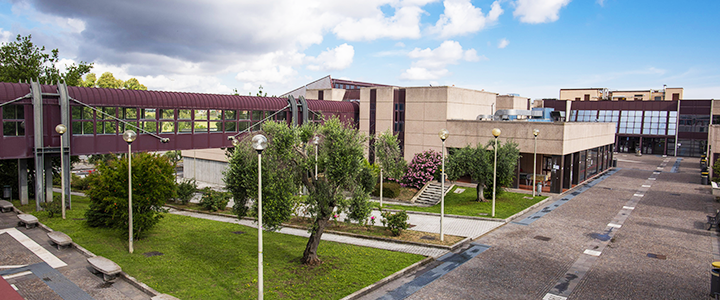Archeologia, Filologia, Letterature e Storia dell’Antichità
Corso di laurea magistrale interclasse (LM-2 e LM-15)
Il Corso di Studio Magistrale interclasse in «Archeologia, Filologia, Letterature e Storia dell’Antichità» offre una didattica finalizzata a rispondere: 1) ai requisiti previsti per l’accesso alla pubblica amministrazione, al mondo delle professioni, all’insegnamento negli Istituti di Istruzione Secondaria di primo e secondo grado e 2) alle esigenze degli studenti che intendano proseguire verso altri sbocchi formativi (Master, Scuole di specializzazione, Dottorati di ricerca). Il Corso assicura una formazione nell’ambito archeologico, filologico, storico e letterario in un’ampia estensione cronologica, dalla Preistoria al Medioevo, curando sia i contenuti delle discipline che gli aspetti metodologici. Parte integrante della formazione degli studenti è l’esperienza pratico-laboratoriale che il Corso promuove attraverso l’ampia offerta di laboratori e attività di scavo, o attivando e riconoscendo crediti formativi per attività di tirocinio e stages. Altrettanto raccomandata, nell’esperienza dello studente, è la mobilità internazionale nel quadro dei programmi Erasmus, Erasmus Plus e di accordi interuniversitari volti al rilascio di titoli di studio comuni.
Come è strutturato?
Il corso, biennale, è articolato in due classi di laurea (LM-2 Archeologia e LM-15 Filologia, Letterature e Storia dell’Antichità). Prevede il raggiungimento di 120 crediti formativi e comprende insegnamenti ̶ obbligatori, opzionali e a scelta libera ̶ cui si aggiungono attività di laboratorio, di scavi e/o tirocini presso enti esterni, e la prova di laurea. È strutturato in modo da consentire l’acquisizione di conoscenze teoriche e di competenze metodologiche e tecniche mediante la partecipazione degli studenti alle lezioni frontali (raggruppate in moduli, equivalenti a 6 cfu o a 12 cfu, per ciascun insegnamento, distribuiti tra il primo e il secondo semestre), e alle attività seminariali, laboratoriali, o di scavo/sopralluogo/visita. Ciascuno studente, attraverso la scelta preliminare della classe (Archeologia o Filologia, Letterature e Storia dell’Antichità) e la personalizzazione del suo percorso formativo nella compilazione del piano di studi, ha, inoltre, la possibilità di raggiungere un orientamento specifico, anche se sempre guidato, sulla base dei suoi interessi prevalenti, sia dal punto di vista cronologico e geografico che tematico.
Canali Social
da gennaio 2024 sono attivi i seguenti canali social aperti a tutti per informazioni sulla didattica, i laboratori e le iniziative per conferenze e seminari:
sito facebook Filarchtorv Univtorvergata
Instagram fil.archtorv
Master Degree Course: Archeology, Philology, Literature and History of Antiquity»
The Master’s Degree Course interclass in «Archeology, Philology, Literature and History of Antiquity», lasting two years, provides training in archeology, philology, history and literature in a wide chronological extension, from Prehistory to the Middle Ages, considering both the contents of the disciplines and the methodological aspects. A fundamental part of the students’ training consists of the practical-laboratory experience promoted by the course through a wide range of laboratories and excavation activities. Training credits for internships and internships may also be recognized. International mobility within the framework of the Erasmus, Erasmus Plus and inter-university agreements aimed at issuing joint degrees is equally recommended.
•A rich educational offer, with numerous teaching disciplines in the archaeological, philological, literary and historical fields covering a wide chronological spectrum, from Prehistory to the M iddle Ages;
• Ability to customize the course of study based on individual interests;
• Strong interdisciplinary vocation which promotes frequent interaction between the different areas (archeology, philology, literature and history of antiquity) and the offer of joint and complementary activities;
• Wide range of in- and out-door laboratories;
• Wide offer of excavations, from Prehistory to the Middle Ages, often realized in synergy with research institutions, Italian and foreign universities, as well as with local Superintendencies and local authorities;
• Wide range of integrative teaching activities, with seminars held by university professors, officials and staff employed by Superintendencies, Museums, Archives, Libraries, Research Institutes and Cultural Institutes, or professionals in the humanistic field (archaeologists, anthropologists, topographers, technical and digital experts, art experts, philologists, editors, journalists and teachers);
• Wide range of internships and internships at museums, archaeological and historical-artistic sites, libraries, and other cultural institutions;
• Direct involvement of students in multi-disciplinary research activities and cultural promotion (seminars, conferences, publications and events);
• International teaching with courses and seminars held by foreign teachers (activation of programs and international mobility exchanges: Erasmus, Visiting Professor, Yerun etc.);
• Facilities for international training experiences, with the adoption of more flexible rules for the recognition of credits accrued in the framework of the Erasmus and Erasmus Plus (Traineeship) programs, the establishment of double-rights agreements and the offer of a broad spectrum of foreign institutions and institutions where they can carry out training and internship experiences;
• Optimal numerical proportions between students and teachers, which allow a continuous and very profitable contact, both within the guidance and tutoring activities, and in all teaching activities (lessons, workshops, in-depth seminars, excavations, guided tours).
 UNIVERSITÀ DEGLI STUDI ROMA TOR VERGATA
UNIVERSITÀ DEGLI STUDI ROMA TOR VERGATA